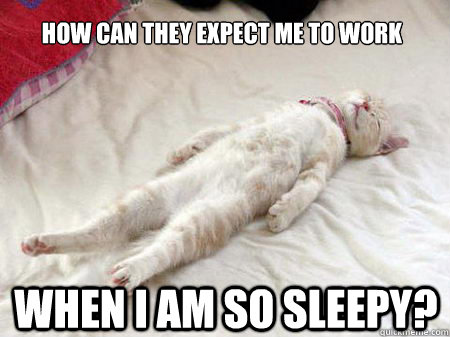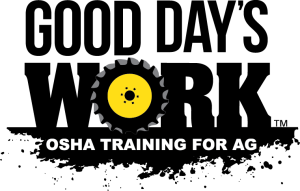What do these infamous calamities have in common: the Exxon Valdez Oil Spill, Three Mile Island, Chernobyl, and The Challenger Explosion? Each of them happened when the crews had been at work for hours and were sleep deprived and fatigued, leading to the mistakes that caused them. These events serve as tragic reminders that sleep is an essential part of staying safe at work.
Sleep is IMPORTANT
A key component of a safe and healthy workplace is sleep. The American Academy of Sleep Medicine and the Sleep Research Society says adults should get 7 or more hours of sleep each night.
During busy seasons like harvest, many people's first instinct is to push themselves to work long hours, day after day, until the work is done. While this may shorten a harvest season, it comes at the price of our sleep. Sleep is consistently under valued by the US's adult population, with the Center for Disease Control and Prevention (CDC) reporting that 1 in 3 adults get less sleep than they need. The outcome of this deprivation? Longer term, sleep deprivation is linked to many issues, but in the short term can cause drowsiness, lowered alertness and concentration, impaired memory, and delayed reaction. When you or your employees are experiencing the effects of sleep loss, it leads to unsafe work environments and increases the risks of accidents happening.

Benefits of Sleep
- Better decision making: A good night’s sleep leads to alert and focused employees, which then allows for more logical and critical thinking, producing better decisions throughout the work days.
- Consistency and productivity: When employees are well rested, they're more consistent and productive, exactly what an employer wants during busy seasons like harvest. Employees also tend to be more flexible and have better attitudes when faced with challenges.
- Fewer accidents: Numerous studies have shown that fatigued or sleep-deprived employees heighten the risk of workplace accidents and decrease productivity.
- Overall health: Sleep is necessary for our bodies' long term health, because it's when our bodies rejuvenate. Consistent sleep loss leads to increased risks for mental health issues, high blood pressure, heart disease, diabetes, and other diseases.
- Less time off work: Healthy employees won't need to take time off for sickness or injuries, increasing productivity and lessening stress on other employees because they won't have pick up the extra work.
- Happier employees: Research by Shawn Anchor, author of The Happiness Advantage has found that happier employees tend to be more creative, better at solving problems and are more effective collaborators.
Make a Plan
It's important to go into the busy seasons with a plan, because without one, you'll be more likely to make last minute decisions that aren't the best for your health or safety. As your workload increases, evaluate the tasks in front of you and manage them in a way that allows you to make sleep a priority. As a society, we're conditioned to cut sleep before anything else, but it's time to challenge yourself to think differently. The work may feel like the most important thing in the moment, but if your health fails you, or worse, if an accident occurs because you didn't take steps to care for yourself and others, you'd soon realize that the work is secondary.
Here are some practical ways to curb fatigue and get better sleep during the busy season:
- Eat healthy, filling meals with a balance of protein and healthy carbs.
- Stay hydrated by drinking plenty of water. Sugary drinks like soda can lead to sudden crashes in energy and interfere with our sleep schedule.
- A little caffeine is okay, but don't rely on caffeine or energy drinks to keep you going. As with sugary things, this can disrupt your sleep cycle.
- Exercise a little throughout the day. This can be difficult when your work is sitting in a combine or tractor all day, but get out a few times to stretch and flex your muscles.
- Stimulate your brain in some way, maybe by listening to music or a podcast.
Closing Thoughts
Sleep deprivation is typically a self-imposed problem. It's time to start thinking differently and making decisions that prioritize your sleep and ultimately your health. The catastrophes mentioned earlier are a warning for us to evaluate the risk we take when we're placing people in a position to work in a sleep deprived state.
Making sleep a priority is about making a conscious choice to consistently reserve 7+ hours of sleep each night. Educate your employees on the benefits of sleep prioritization for higher productivity, better overall health, and a safer workplace.




